AI
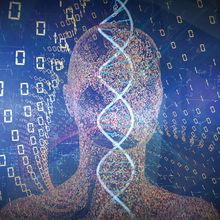
Pioneering the Aging Frontier with AI Models
Shelby Bradford, PhD | Dec 13, 2024 | 8 min read
David Furman uses computational power, collaborations, and cosmic inspiration to tease apart the role of the immune system in aging.

The Evolution of Microbe Teachers and AI Cheaters
Meenakshi Prabhune, PhD | Dec 13, 2024 | 2 min read
In nature, microbes fend off their microbial competitors. In the digital world, can AI-detection tools help researchers knock out AI-based research misconduct?

Sapio Sciences Expands Collaboration With AWS to Advance Science-Aware AI Vision
Sapio Sciences | Nov 8, 2024 | 2 min read
Collaboration enables customers to securely and confidently use AI to accelerate drug research and discovery.
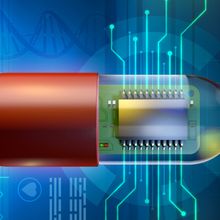
Transforming Biopharma Research Through Artificial Intelligence
Sartorius | Oct 9, 2024 | 1 min read
Learn how researchers take their drug discovery and development research to the next level with artificial intelligence.

Sino Biological and BioGeometry Deepen Strategic Cooperation to Empower Protein R&D with Generative AI
The Scientist Staff | Sep 11, 2024 | 2 min read
This collaboration brings together Sino Biological’s advanced protein expression and wet-lab capabilities with BioGeometry’s generative AI protein design and optimization platform.
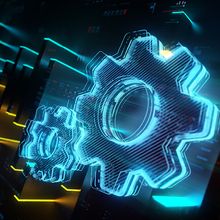
Enhancing Efficiency in the Clinical Research Laboratory
Thermo Fisher Scientific and The Scientist | Jun 17, 2024 | 1 min read
Automation, multiplexing, artificial intelligence, and more come together to build a better laboratory environment.
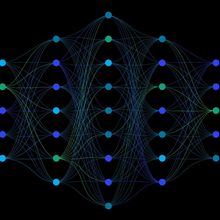
From the Expert: Machine Learning and Artificial Neural Networks
The Scientist | Mar 1, 2024 | 1 min read
Grace Lindsay explains machine learning and describes how artificial neural networks mimic the architecture of brain neurons to learn from and process data.
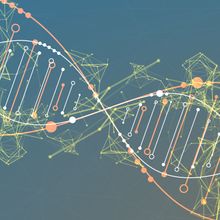
Precise and Rapid Clinical Genomics Data Interpretation
Velsera | Feb 27, 2024 | 1 min read
A new approach to precision medicine efficiently and accurately associates disease biomarkers with clinical evidence.
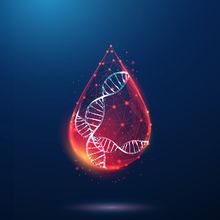
Standardized Data Analysis of Multiplex PCR
Velsera | Jan 16, 2024 | 1 min read
Automated analysis minimizes error risk, analysis time, and technician variation.

Data Strategies for AI-Enabled Scientific Breakthroughs
TetraScience | Dec 11, 2023 | 1 min read
Properly optimizing data enhances AI training for accelerating novel biopharmaceutical discoveries.

Why Scientists Need to Rethink Their Data Platforms
TetraScience | Nov 16, 2023 | 1 min read
Good data management is the first step toward improving scientific outcomes with artificial intelligence and machine learning.
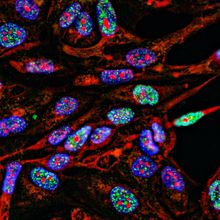
Shining a Light on New Microscopy Technologies
Evident and The Scientist | Sep 22, 2023 | 1 min read
From the advent of optical microscopes to today, light microscopy methods have been central to life science discoveries across disciplines.
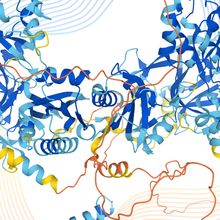
Lasker Award for Revolutionizing Protein Structure Predictions
Laura Tran, PhD | Sep 21, 2023 | 6 min read
John Jumper and Demis Hassabis received this year’s 2023 Albert Lasker Basic Medical Research Award for their work on the artificial intelligence system AlphaFold, which changed the landscape of protein biology.
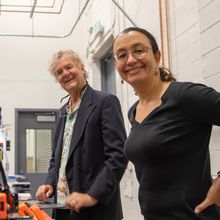
Smart Gateways into the Lab of the Future
The Scientist | Sep 21, 2023 | 2 min read
Neurobiologists, computer scientists, and engineers join forces to grow mini brains using automation and make their technologies smarter with artificial intelligence.
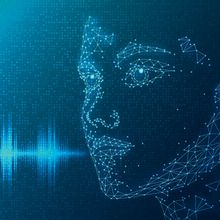
What Can ChatGPT-like Language Models Tell Us About the Brain?
Natalia Mesa, PhD | Sep 8, 2023 | 8 min read
A renaissance in natural language modeling may help researchers explore how the brain extracts and organizes meaning.
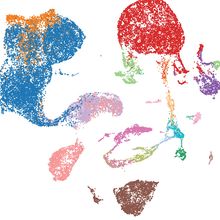
A New AI Tool Predicts Gene Expression in a Single Cell
Carissa Wong, PhD | Aug 21, 2023 | 4 min read
An artificial intelligence tool, scGPT, can identify cell types, predict the effects of disrupting genes, and pinpoint which genes interact with each other.

Shining a Light on New Microscopy Technologies
The Scientist and Evident | Aug 18, 2023 | 3 min read
Scientists turn to technological advances that streamline microscopy workflows and enable life science breakthroughs.
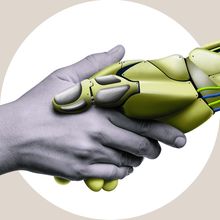
How should we proceed with image-analyzing AI?
Ida Emilie Steinmark, PhD | Aug 1, 2023 | 2 min read
Algorithms can now glean ever more molecular and genetic information from images of stained tissue, but some researchers worry that we can’t follow their logic.

Data Management Tools for Greater Innovation and Discovery
Flywheel | Apr 4, 2023 | 1 min read
Discover the top five reasons researchers need modern medical imaging infrastructure.
